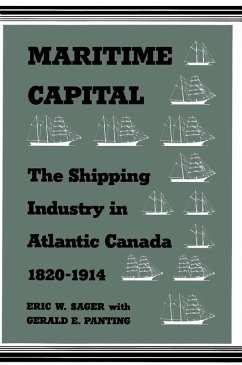Sager and Panting describe in detail the growth of the shipping industry and the economic context in which the shipping merchants operated. Shipowning and shipbuilding were a central part of the mercantile economy of the Atlantic colonies of British North America. But, following a slow and incomplete transition in the region from commercial to industrial capitalism, the shipping industry collapsed: by 1900 the local fleets were a third of their size a mere two decades earlier. The shipowners of the region, Sager and Panting argue, were merchants first: they shifted their investments to landward enterprises because they believed Confederation offered new and better possibilities for commercial exchange. Canadian capital and the Canadian state acted together to build transcontinental railways but gave little support for a Canadian merchant navy. Maritimers became Canadians and turned away from their seaward past, thereby relinquishing control and management of the industrial economy that followed the age of wood, wind, and sail. Drawing upon both the data base of the Atlantic Canada Shipping Project and important secondary sources, Sager and Panting show that the merchant class, in failing to maintain a merchant marine built and owned in their region, contributed in no small way to the Maritimes' present state of underdevelopment.
Dieser Download kann aus rechtlichen Gründen nur mit Rechnungsadresse in A, B, BG, CY, CZ, D, DK, EW, E, FIN, F, GR, HR, H, IRL, I, LT, L, LR, M, NL, PL, P, R, S, SLO, SK ausgeliefert werden.









